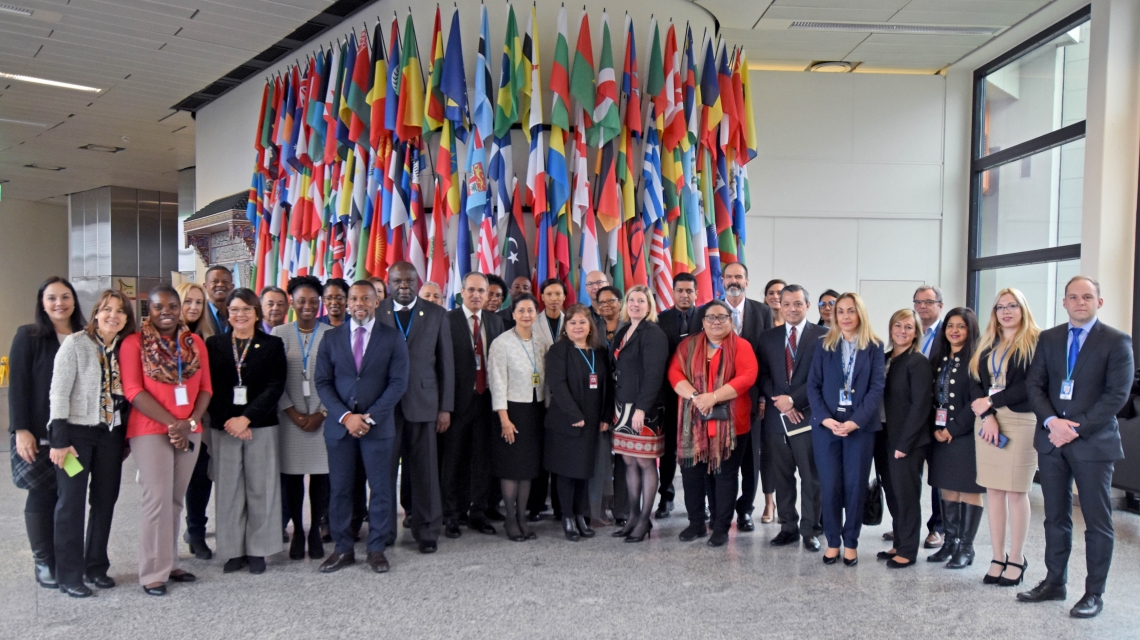Fifteen representatives of countries which are Member States of both the IAEA and the Caribbean Community (CARICOM), together with delegates from CARICOM regional organizations, gathered at the Agency’s Vienna headquarters from 18 to 20 November to review and subsequently endorse the Regional Strategic Framework (RSF). This document compiles and identifies the shared development challenges affecting countries in the Caribbean, and clarifies how and where nuclear science and technology can contribute to their resolution.
The Caribbean is home to close to 45 million people who—despite linguistic and cultural differences—are united by common challenges and opportunities. Reflecting the desire to work more closely together and to leverage the available resources and capacities in the region, stakeholders and decision-makers from Member States in the Caribbean met throughout 2018 and 2019 to consider how best to tackle development issues cooperatively, and how to collectively implement nuclear-derived solutions with IAEA assistance, supported by a Regional Strategic Framework that would align Agency support with existing development priorities. The year-long development process included several rounds of regional stakeholder reviews and IAEA expert assessments, which supported the crafting of a coherent and consensus-based list of priorities for the Caribbean.
The RSF identifies priorities, opportunities and obstacles associated with nuclear-supported development in the Caribbean, particularly in the fields of agriculture, food safety and security, human health, energy planning, radiation technologies and radiation safety. The document draws attention to not only the benefits of nuclear techniques and technologies, but also to the most commonly-encountered challenges which may prevent or delay the implementation of those technologies. Moreover, the RSF addresses cross-cutting issues on which the success of nuclear applications may depend, notably: communication and outreach, partnership-building and gender mainstreaming, as well as guidance for the subsequent monitoring and evaluation of technical cooperation activities.
“The Regional Strategic Framework represents a significant step in developing future programming in the Caribbean region. As such, it will serve as a framework within which future TC projects can be developed, implemented and monitored, thereby promoting stronger cooperation amongst regional stakeholders,” said Luis Longoria, Director, IAEA Technical Cooperation Division of Latin America and the Caribbean.






